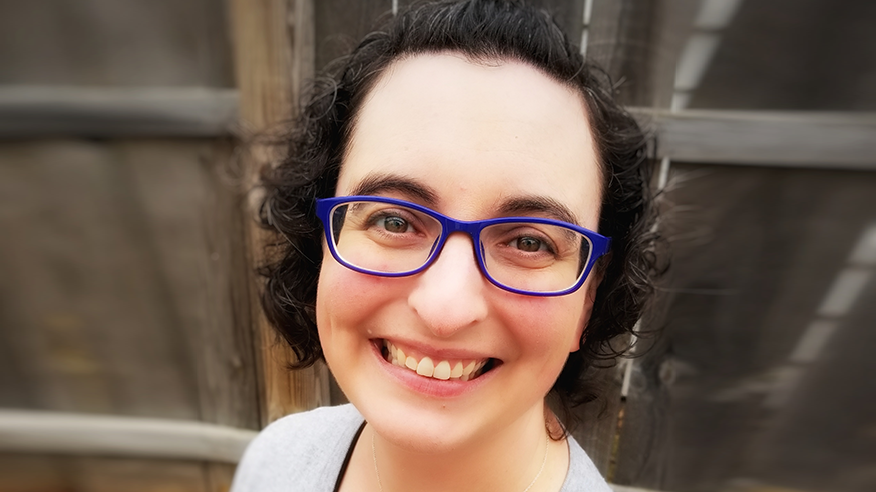In 2017, Laura Sette ’00 was honored by the Wisconsin Law Journal as one of 29 outstanding “Women in the Law.” Dial back to her days as a student at Winona State – her interest in the law was sparked by volunteering with victims at the Women’s Resource Center in Winona, and becoming a founding member of the student group FORGE (Fighting for Our Rights and Gender Equality). She then set her sights on becoming a district attorney to prosecute sensitive crimes such as sexual assault and domestic violence.
But when she moved on to the University of Wisconsin-Madison for law school, her career path headed in a different direction. Over a summer in law school, she signed up for a family law internship that would require her to work with people in prison. The internship got her into the courtroom, and that interested her – although she admits that she was scared to meet the criminals after reading what they had done. The first client she met was a man serving a life sentence for brutally killing three people, but she discovered that she didn’t have any reason to be scared. She could sit down and talk to him as she would any other person.
As she got more and more contact with her clients in prison, she realized that these people were more than their worst day – they were people. She decided to shift her focus and move into public defense. The next year, she interned in the public defender’s office and has been in that realm ever since.
In 2004, she received her Juris Doctorate and moved to New York City, where she took the New York bar and began practicing at Brooklyn Defender Services. After three years there, she moved back to Wisconsin and began working at the Wisconsin State Public Defenders office in Racine. She worked primarily on felonies – serious gang crimes, homicides, armed robbery, and drug cases. After three years at that office, she moved into her current position on the Juvenile Mental Health Team in Waukesha, Wis., and has been there for seven years.
As the team name implies, Sette works with juveniles as well as people who are mentally ill. Mentally ill clients may be people who have been involuntarily committed to a mental institution because they’re a danger to themselves or others, or they may be people who need guardians because they are unable to make their own decisions, due to being mentally ill or being older and dealing with Alzheimer’s.
She also does some crossover work in cases where a mental health client has been to the hospital but has also been charged with a criminal offense. In those cases, Sette will help advocate for them in criminal court. She says that having that person who can advocate for them really makes a difference, and can actually help them do better in treatment because they can realize that the treatment is valuable, and – even though it’s being forced on them – not necessarily bad.
Her work with juveniles also entails working as an advocate counsel, which is required in Wisconsin for juveniles ages 12 and up. In this role, it’s Sette’s job to advocate for what the juvenile wants, not necessarily what’s in their best interest – giving them a voice in court. She also represents children in need of protection services, who are typically victims of abuse or neglect by their parents or caregivers. Additionally, she represents children accused of delinquent acts, those who are truant from school, or those who have run away from home.
For her juvenile clients, Sette says, “it’s a really big deal to have someone who listens to them and advocates for them. For a lot of my kids, when they’re 12 or 13, no one’s really listening to what it is they have to say or their feelings on what’s happening. The fact that they have someone listening to them who’s on their side and is going to fight for whatever it is they want makes a big difference for them in the overall process.”
As part of her job, she also serves on many committees that help come up with alternatives to sanctions for teenagers. In 2017, she was recognized by the Waukesha Bar Association for community service given to Waukesha County for an initiative she was involved in that created a community garden as one of those alternatives. As part the program, teenagers in the system come to the community garden two days a week to learn about gardening and raising vegetables, which are then donated to a local food bank. “It’s been a great experience for the teens involved,” Sette says, “getting them out of their house to learn about something they never would have otherwise. And because many of the teens also have mental health issues, it helps them branch out, work as a team, communicate with others, and build relationships with adults who are a good influence on them.”
Two other committees she’s involved in include the area’s truancy committee, which works with schools to find alternatives to address truancy besides the traditional punishment of being put into non-secure custody. The second is the Positive Youth Intervention committee, an offshoot created from the community garden project, where they are working to set up different programs to help kids find an outlet in something they enjoy. They’re looking to start a hiking club, running club, theater group, and community service group that will help kids find different ways to be engaged in the community.
Sette says that the two biggest challenges she faces are time and resources. As a state agency, she doesn’t have all the time that she would love to give to her clients, because she has so many. And there simply aren’t enough resources in the community to send those clients to in order to get the treatment they need.
“There’s a shortage of psychiatrists right now,” says Sette, “so there’s a wait list for most psychiatrists and a lag time of about six months just to get an appointment.” The impact that creates, she says, is that when psychiatrists prescribe medication, there are always adjustments that need to be made. If her clients can’t get in on a regular basis to get their medications adjusted, many stop taking them because they don’t like the side effects.
Nevertheless, even with all the challenges she’s presented with on a daily basis, it’s her clients that keep her coming back to work each day. She represents those clients from the time they come into the system until they turn 18, so it’s not uncommon for her to work with some kids for six or seven years, developing a close relationship with them. And while it is exhausting work, she’s driven by seeing the positive change in the kids she’s helping. “There are some kids who, after taking part in these programs, don’t ever come back to court,” Sette says. “It’s good to see the system changing, and hopefully it continues to change.”



